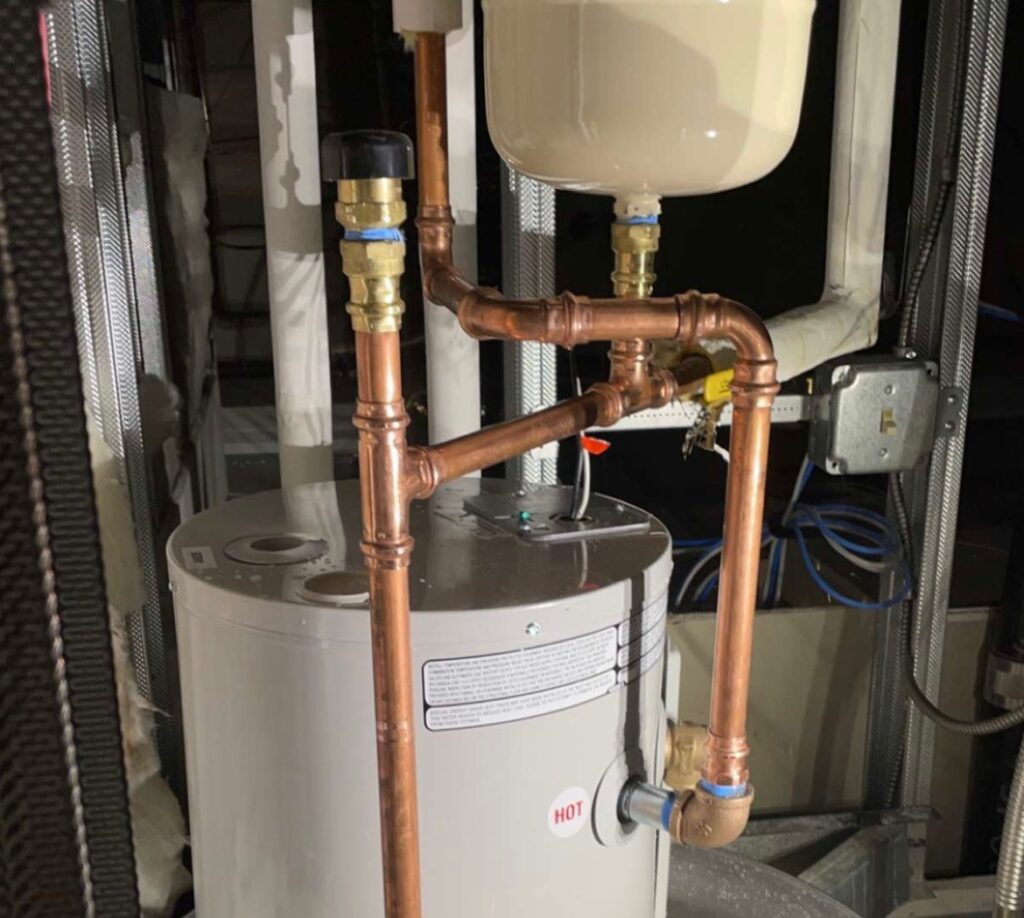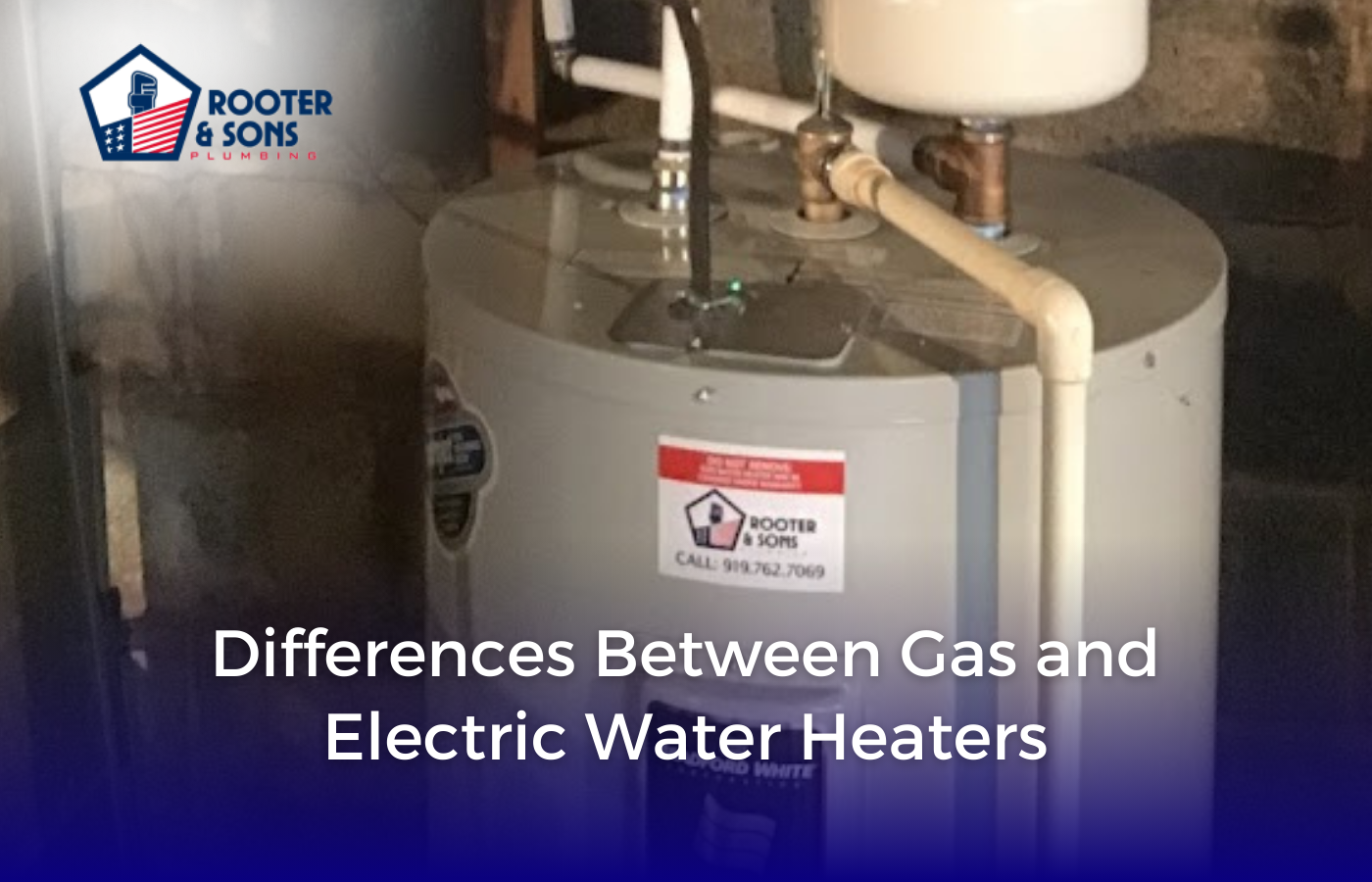Choosing a new water heater can be a significant decision for homeowners. With various types available, it helps to understand the distinctions between gas and electric water heaters. Both have their unique features and benefits, which can impact your choice depending on your needs.
This blog post will cover the essential differences between these two options to help you decide the best fit for your needs. Whether you’re considering a water heater replacement or installing a new unit, understanding these differences can save you time and money in the long run.

How They Work
Gas Water Heaters
Gas water heaters use natural gas or propane to heat the water. They have a burner at the bottom of the tank that ignites when hot water is needed. This flame heats the water in the tank, providing a continuous supply of hot water. These units typically require ventilation to expel combustion gasses safely.
Electric Water Heaters
Electric water heaters use heating elements placed inside the tank to warm the water. These elements are controlled by a thermostat and can quickly heat the water as needed. Electric units do not require ventilation, making them easier to install in various locations within the home.
Efficiency and Operating Costs
Gas Water Heaters
Gas water heaters tend to heat water faster compared to electric models. They maintain a steady supply of hot water, making them ideal for larger households. The operating costs can vary based on the price of natural gas or propane in your area. However, gas heaters can be cost-effective when fuel prices are favorable.
Electric Water Heaters
Electric water heaters are often considered more energy-efficient since they convert nearly all the energy they use into heat. Their operating costs depend on electricity rates, which can fluctuate. For areas with stable and low electricity prices, electric water heaters can be a good choice.
Installation and Maintenance
Gas Water Heaters
Installing a gas water heater typically involves more complexity due to the need for proper ventilation and gas line connections. It’s crucial to have a professional handle the installation to ensure safety and compliance with local codes. Gas units require regular maintenance to check for gas leaks and ensure the venting system is functioning correctly.
Electric Water Heaters
Electric water heaters are generally easier to install since they don’t need ventilation. They can be placed in various locations without worrying about exhaust gasses. Maintenance for electric units is straightforward, often involving periodic checks of the heating elements and thermostats.
Lifespan and Durability
Gas Water Heaters
Gas water heaters usually have a lifespan of 8 to 12 years. Regular maintenance can help prolong their life, ensuring they continue to operate efficiently. The durability of these units depends on factors like water quality and the frequency of use.
Electric Water Heaters
Electric water heaters often last slightly longer, typically 10 to 15 years. They have fewer moving parts, which can contribute to a longer lifespan. Regular inspection and maintenance of the heating elements can help maintain their effectiveness over time.
Hot Choices: Gas vs. Electric Water
When deciding between gas and electric water heaters, consider factors such as installation requirements, operating costs, and efficiency. Both types have their advantages and can serve your household needs effectively. Assessing these differences will help you make an informed decision for your next water heater replacement, ensuring you choose the right type for your home’s specific needs.
Ready to upgrade your home with a new water heater but can’t decide between gas or electric? Rooter and Sons has got you covered. We specialize in installing all types of water heaters. With our expert services, rest assured your water heater will be installed safely and efficiently, regardless of your choice. Beyond installation, we also provide repairs to keep your water heater running smoothly. Don’t worry about deciding; contact Rooter and Sons for a seamless water heater replacement experience.

